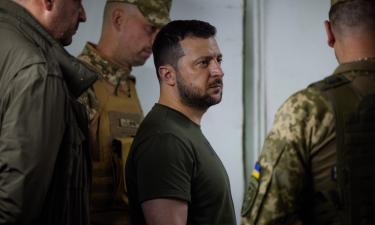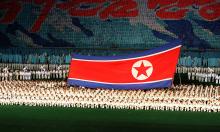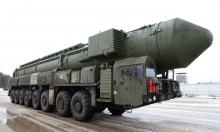Pay-as-You-Go Politics
Chairman of the Russian Union of Industrialists and Entrepreneurs Arkady Volsky has suggested something that many are calling a novel and fair way out of the impasse posed by the Kremlin-Yukos affair
Volsky suggested that, if Platon Lebedev, currently residing in Moscow’s Lefortovo prison and CEO of Yukos' main shareholder, is released on bail, Lebedev will transfer the $228 million he is accused of stealing during Russia’s wild privatization days back to (presumably) the state. What appears to be novel here really is not. And what appears to be an easy and fair way out may have nightmarish implications for the development of the rule of law and due process in Russia.
Volsky is no stranger to the world of high politics and oligarchy, and his settlement idea (state-sanctioned kidnapping, blackmail and payment of ransom - all in public view!) seems to confirm that one main driver of the conflict is a desire to get a share of Yukos’ cash flow. Capturing such flows is a time-honored Russian gambit to attempt to expand one's political power and influence. It appears that the Kremlin chekists tormenting Yukos, Lebedev and Mikhail Khodorkovsky are capable of learning a few new tricks - they are now imitating the tactics the oligarchs employed when building their empires a few years ago. This is a very dangerous development for Russian politics and business.
If the Volsky solution is accepted, it is logical to assume that the expropriated funds (the paid ransom, in other words) will be directed either to finance the pro-Kremlin parties’ pre-election campaigns or benefit of the political forces usually called the "St. Petersburg/KGB/FSB group" or, most likely, both. One has to wonder what the General Prosecutor’s Office and Audit Chamber will think about such a deal if it actually comes to fruition. If the Volsky solution becomes a precedent for Kremlin campaign tactics, the two watchdog organizations may be made even less relevant than they already are.
The Volsky solution seems to be a crude, but effective, measure to raise campaign funds for the Kremlin. Elections are not really important in Russia; however, they are not cheap. It is also a signal that Russian politics is a ghost without substance, without a connection to or role to play within the real world. It is also a sign that President Vladimir Putin feels much more comfortable with an administered society than in the development of a civil and democratic polity. This is something Untimely Thoughts has commented on a number of times in the past; the current political saga just adds flesh to this thesis.
A few months ago, in a piece written for RFE/RL, I suggested that Putin is already a lame-duck president - before the end of his first term in office and widely expected re-election next year. The ongoing attack on Yukos is a strong signal that many of his close handlers, advisors, etc., are looking much further into the future than merely another Putin term. It has always been my impression that Putin's presidency was the creation of an array of business and political interests, and that he was put in place to rule during a very specific time during Russia’s transformation.
Before, it was the Yeltsin "Family" interests that were operative everywhere behind the scenes. Now, the Kremlin's favor seems to be gradually moving in the direction of some combination of security, military and moneyed interests. This group has been consolidating itself under Putin and appears to be prepared to continue its attempt to control political and economic change in Russia long after he has officially left the political arena.
This is what makes the Putin phenomenon interesting and important - and the attack on Yukos so threatening. Putin is very popular and even charismatic. However, many of his political reforms themselves lack popularity (sometimes because they are not understood) or charisma (as his personality is always detached from unpopular initiatives). The Putin phenomenon has been a perfect cover for many in the Kremlin to "rearrange the correlation of forces" that was negotiated and agreed-upon between the Kremlin and the oligarchs three years ago. Putin will continue to be presented as the poster child of quiet, restraint and international pride - which are all genuinely popular themes among most Russians.
The deal of 2000 has run its course, and the upcoming elections are an excuse to call everyone back to the table. The rich may have become richer, but the state bureaucracy has finally - after a long hiatus - started to feel more confident. Its public face, Putin, even gives it a modicum of popular legitimacy. Moscow Mayor Yury Luzhkov’s claim that the oligarchs are "unpatriotic" - a reference to Roman Abramovich's purchase of the British football club Chelsea - only adds to the cheap political theater the Kremlin appears to be quite pleased to generate. It is hard to feel sorry for the oligarchs, though - they were the mentors of this newly emerging Kremlin clan that desires to beat them at their own game.
Volsky’s "pay-as-you-go" approach to Russia’s political problems is a halfway house representing both this country’s progress and its inability to change. Money always speaks in a loud voice, especially during the extraordinarily good times Russia is currently experiencing. However, giving in to the criminal behavior of the authorities, with Putin standing by in silence, sends the signal that the country's political future may not be determined by the highest bidder — but it will be by what can be extorted in the service of constructing a Russian reality that appreciates uniforms, following orders and accepting what "they" determine is best for the rest of us.
To be fair to Putin, the ugliest elements of the system he is helping to create may only become truly visible after he leaves the post. This is probably the main reason he has stated his desire to leave politics after his assigned tasks have been completed.
Peter Lavelle's Untimely Thoughts (www.untimely-thoughts.com)
Subscribe to Pravda.Ru Telegram channel, Facebook, RSS!




